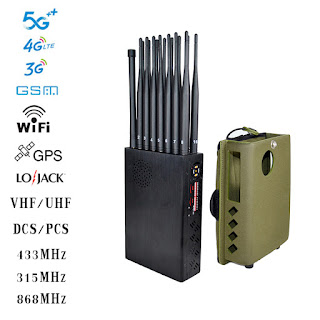Legal Matters Involving Car Remote Control Jammers
Gain insight into car remote control jammers and the legal consequences of their use. These devices can effectively safeguard against vehicle theft; however, their application is tightly controlled in many jurisdictions due to concerns regarding interference with lawful communications and security vulnerabilities. A thorough analysis of the legal framework governing car remote control jammers will shed light on their permissibility in different regions and the legal limitations that users must navigate to remain within the bounds of the law.
Is it legal to use a car remote control jammer?
The legal status of car remote control jammers is not uniform and varies considerably from one country to another. Some regions impose strict bans on the use of such devices, while others may allow them under certain conditions, albeit with specific restrictions. Therefore, it is imperative for anyone thinking about acquiring or using a car remote control jammer to be well-informed about the applicable local laws.
The Federal Communications Commission (FCC) governs the use of car remote jammers in the United States. The FCC has established rigorous regulations to prevent the use of jamming devices, as they can interfere with essential communications, such as those used by emergency services, GPS systems, and other wireless technologies. The Communications Act of 1934 explicitly makes it illegal to operate any device that disrupts authorized communications or broadcasts.
Legal Provisions: In the United States, the use, sale, or importation of car remote jammers is unlawful unless expressly authorized by the FCC for particular professional or governmental purposes. Breaching these laws can lead to considerable fines and possible incarceration.
The European Union adopts a rigorous approach to the deployment of jamming devices. It is the responsibility of the European Telecommunications Standards Institute (ETSI) and the regulatory authorities in individual member states to implement regulations that prohibit devices that disrupt radio signal transmission.
Legal Prohibitions: The operation of car remote GPS blockers is deemed illegal in most European Union countries, as they can hinder critical communications and significantly threaten public safety. In certain jurisdictions, individuals found using such jammers may be subjected to considerable fines or criminal charges. Generally, the employment of these devices is restricted to authorized entities and is closely monitored.
Just as in the United States, there are exceptions for particular professional scenarios, such as those involving law enforcement or security personnel. However, these exceptions are usually limited to designated circumstances and often demand the acquisition of special permits or licenses.
The use of car remote jammers is deemed illegal in the United Kingdom, as stipulated by the Wireless Telegraphy Act 2006, which bans unauthorized radio signal transmissions. The Office of Communications (Ofcom) oversees the regulation of wireless devices, including those used for jamming purposes.
Legal Limitations: Car remote jammers are considered unlawful unless they are licensed by Ofcom. The unauthorized deployment of a jammer can incur substantial penalties, which may include fines and the confiscation of the device.
The primary exceptions to this regulation are associated with governmental and law enforcement activities, which demand particular authorization. Individuals or enterprises seeking to employ car remote jammers for private purposes would be breaching UK law.
The Australian Communications and Media Authority (ACMA) governs the use of car remote jammers in Australia, ensuring compliance with communication device regulations. Consistent with practices in other regions, the deployment of jamming devices is prohibited unless one possesses a specific license for authorized purposes.
Under Australian legislation, the employment of car remote jammers is deemed illegal, resulting in potential fines and penalties for those who utilize them without the necessary authorization.
As in various other countries, there are exceptions that allow law enforcement agencies to employ jamming technology for designated purposes, though these cases are closely monitored and regulated.
The use of car remote jammers is deemed illegal in Canada under the Radiocommunication Act. The Canadian Radio-television and Telecommunications Commission (CRTC) oversees the enforcement of regulations pertaining to jamming devices, which are considered a potential danger to communication systems and public safety.
Legal Restrictions: The use of car remote jammers without authorization is illegal in Canada, and violators may be subject to fines and the seizure of their devices.
Exceptions: Consistent with the policies of various countries, law enforcement agencies might be granted permission to deploy jamming devices in designated, controlled scenarios, including counter-terrorism measures or public safety operations, provided that they obtain formal authorization.



Comments
Post a Comment